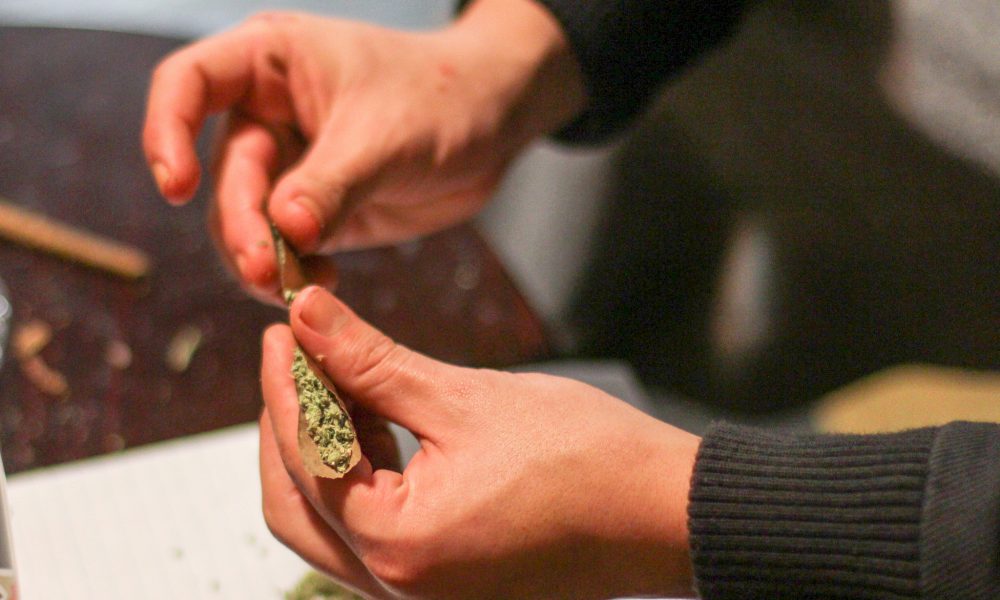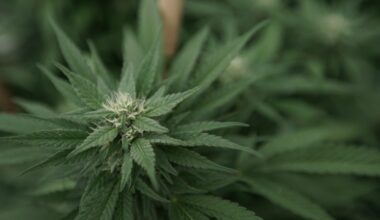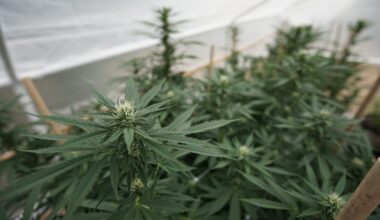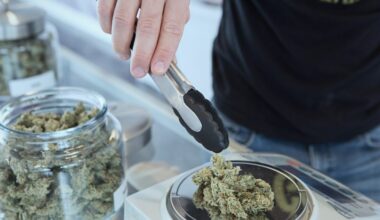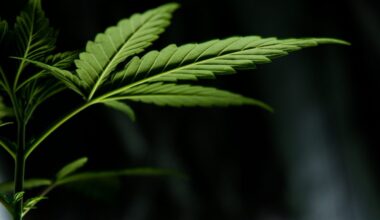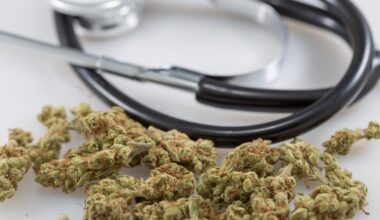New York marijuana regulators on Monday approved the first round of cannabis processor licenses, as well as additional cultivators, as the state gets closer to launching adult-use sales.
Members of the Cannabis Control Board (CCB) also gave the green light to proposed laboratory and sampling regulations and approved the hiring of a policy director, John Kagia, who has worked for the marijuana industry analytics firm New Frontier Data.
BREAKING: @jkagia has been approved as our Director of Policy.
As a leading voice in cannabis, Kagia has created innovative opportunities, mitigated risks, and so much more for consumers. We are thrilled to work alongside him as we build a model cannabis market in New York. pic.twitter.com/N9h1MhINer
— NYS Office of Cannabis Management (@nys_cannabis) August 15, 2022
The board on Monday accepted 15 licenses for existing hemp businesses seeking to process marijuana and extract cannabinoids. This marks the first approvals for that adult-use license type in New York.
BREAKING: The first 15 adult-use conditional processor licenses have been approved!
For New Yorkers, this means processors can now turn cannabis plants grown by NY family farmers into products like edibles, vape carts, and oils. Excitement is an understatement!
— NYS Office of Cannabis Management (@nys_cannabis) August 15, 2022
CCB also approved emergency regulations for marijuana laboratory testing standards, a move that allows regulators to “immediately open the application window” for testing facilities, CCB Chair Tremaine Wright said.
Medical cannabis testing facilities will automatically be able to start analyzing marijuana for adult-use sales under the rules. The regulations further require the establishment of a “state reference laboratory to test when needed for quality assurance matters and to assist with laboratory method development.”
View the approved regulations here: https://t.co/XB3Ukb6iaI
— NYS Office of Cannabis Management (@nys_cannabis) August 15, 2022
These are the latest steps that regulators have taken as New York prepares to open the first recreational shops. People who were directly impacted by the drug war will get initial retail licensing priority, and CCB said last week that applications for those conditional licenses will be accepted starting on August 25.
In order to qualify for a conditional adult-use marijuana retail license, applicants must have faced a conviction for a cannabis-related offense prior to the enactment of legalization in the state, or have a direct relative with such a conviction, and they must also have experience operating a qualifying business.
The definition of a qualifying “justice-involved” individual was also expanded to include people who were arrested for marijuana but convicted for a lesser offense, which advocates view as a positive step that will broader the applicant pool.
The application will be available online at the New York State Business Express site. Prospective applicants are being encouraged to begin compiling the required documents before the portal opens this month. The application period for this license type will be open for just a month, closing on September 26.
CCB has also been approving numerous conditional cultivator applications, which are being granted to existing hemp businesses in the state. Gov. Kathy Hochul (D) signed a bill to create the conditional cultivation licenses in February.
On Monday, regulators approved 19 more cultivator licenses, for a total of 242.
NEW: An additional 19 adult-use cannabis cultivation licenses have been approved!
242 New York farms are now licensed to grow adult-use cannabis in the Empire State 🗽🍃.
…#NewYorkMade #CannabisCommunity— NYS Office of Cannabis Management (@nys_cannabis) August 15, 2022
With respect to retailers, Office of Cannabis Management (OCM) Executive Director Chris Alexander said last month that the OCM diligently reviewed and responded to public comments on the proposed rules for conditional retailers, but there’s still been some frustration among stakeholders who feel that the input was not thoughtfully incorporated.
For what it’s worth, a recent poll found that most New Yorkers voters are against that proposal to prioritize retail licenses for justice-involved people.
Separately, OCM also recently publicized dozens of cease and desist letters that they have sent to businesses accused of illegally selling marijuana as the state prepares to launch its adult-use market.
But there’s been skepticism about the accuracy of the office’s enforcement targets. Some businesses that were named as operating illicit marijuana shops say they never received the notice; others, including one event and catering business, say that were wrongfully targeted, denying that they’ve been involved in cannabis sales.
As it stands, adults 21 and older can possess and publicly consume cannabis, as well as gift marijuana to other adults as long as they aren’t being compensated.
In June, CCB also approved a series of proposed rules for marijuana packaging, labeling, advertising and testing requirements.
During April’s CCB meeting, regulators also approved revised regulations to allow medical marijuana patients to grow their own plants for personal use following a public comment period on initial rules that were proposed last year.
In general, the rule would allow registered patients and caregivers to grow up to six plants, only three of which could be mature. They could possess up to five pounds of cannabis derived from those plants, which is consistent with the state’s adult-use legalization law.
Meanwhile, New York lawmakers recently sent a budget proposal to the governor’s desk that includes provisions to let marijuana businesses take state tax deductions that are available to other industries despite an ongoing federal ban on cannabis. That was signed into law.
Sen. Jeremy Cooney (D) filed a standalone bill in December seeking a similar carve-out for the state’s burgeoning cannabis market. Assemblymember Donna Lupardo (D) followed suit in her chamber. Cooney also filed a bill in May to allow regulators to disclose certain information about cannabis licensees to financial institutions to promote marijuana banking.
Hochul has repeatedly emphasized her interest in efficiently implementing the legalization law.
The governor released a State of the State book in January that called for the creation of a $200 million public-private fund to specifically help promote social equity in the state’s burgeoning marijuana market.
That proposal was also cited in the governor’s executive budget, which was released in January. The budget also estimated that New York stands to generate more than $1.25 billion in marijuana tax revenue over the next six years.
Hochul said that while cannabis business licenses have yet to be approved since legalization was signed into law last year, the market stands to generate billions of dollars, and it’s important to “create opportunities for all New Yorkers, particularly those from historically marginalized communities.”
OCM has also been putting out PSAs to promote public education about the marijuana policy change, including a first-of-its-kind taxpayer-funded marijuana ad that aired in most of New York during an NBA Finals game last month. The PSA boldly addressed the racially discriminatory harms of cannabis criminalization and highlighted steps that state regulators are taking to right the wrongs of prohibition.
CCB also wants the opportunity to showcase its marijuana PSA campaign on the social media app TikTok, but it was told by the company previously that it could not use the platform because of its existing ban on the use of the word “cannabis.” The department recently sent a letter to TikTok, requesting a policy change for government marijuana-related ads that concern public education.
Here are some other ways that New York lawmakers and regulators are working to promote drug policy reform as the state prepares to implement retail marijuana sales:
Last month, Hochul announced that the state had awarded $5 million in funding to community colleges to support the development and improvement of courses and programs specifically meant to help people secure jobs in the marijuana industry.
The New York Senate approved a bill in June that would require public health insurance programs to cover medical marijuana expenses and clarify that private insurers are allowed to do the same.
Both chambers of the state legislature have passed a measure to encourage businesses to use hemp materials for packaging, construction and other industrial purposes.
—
Marijuana Moment is tracking more than 1,500 cannabis, psychedelics and drug policy bills in state legislatures and Congress this year. Patreon supporters pledging at least $25/month get access to our interactive maps, charts and hearing calendar so they don’t miss any developments.![]()
Learn more about our marijuana bill tracker and become a supporter on Patreon to get access.
—
The state Department of Labor separately announced in recent guidance that New York employers are no longer allowed to drug test most workers for marijuana. Even prior to the enactment of legalization, New York City officials had established a local ban on pre-employment drug testing for cannabis.
A recent legal directive from the New York City Law Department (NYCLD) has put police and firefighter drug testing policy in the spotlight after a document that was leaked from the New York Police Department (NYPD) signaled that officers would no longer be subject to pre-employment, random or scheduled screening for cannabis because of the legal analysis.
A firefighters union claimed credit for the new directive, saying that it was responsive to inquires that it made to the city.
Separately, the mayor of New York City says he’s looking into the idea of authorizing marijuana to be grown in greenhouses on the rooftops of public housing buildings—an ambitious proposal that’s unlikely to sit well with the federal government, which provides funding to support the NYC Housing Authority (NYCHA).
A New York senator filed a bill in May that would legalize what would essentially be licensed community marijuana gardens for people who aren’t able to cultivate cannabis at their own homes.
Also that month, a New York Assembly committee advanced a bill to establish a statewide safe consumption site program, allowing regulators to authorize facilities where people could use currently illicit drugs in a medically supervised environment.
Meanwhile, a New York lawmaker introduced a bill last year that would require the state to establish an institute to research the therapeutic potential of psychedelics.
Another state legislator filed legislation in December to legalize psilocybin mushrooms for medical purposes and establish facilities where the psychedelic could be grown and administered to patients.
Majority Of Texas Voters Support Marijuana Legalization, Poll Finds
Photo courtesy of Martin Alonso.
Medical Disclaimer:
The information provided in these blog posts is intended for general informational and educational purposes only. It is not a substitute for professional medical advice, diagnosis, or treatment. Always seek the advice of your physician or other qualified healthcare provider with any questions you may have regarding a medical condition. The use of any information provided in these blog posts is solely at your own risk. The authors and the website do not recommend or endorse any specific products, treatments, or procedures mentioned. Reliance on any information in these blog posts is solely at your own discretion.
